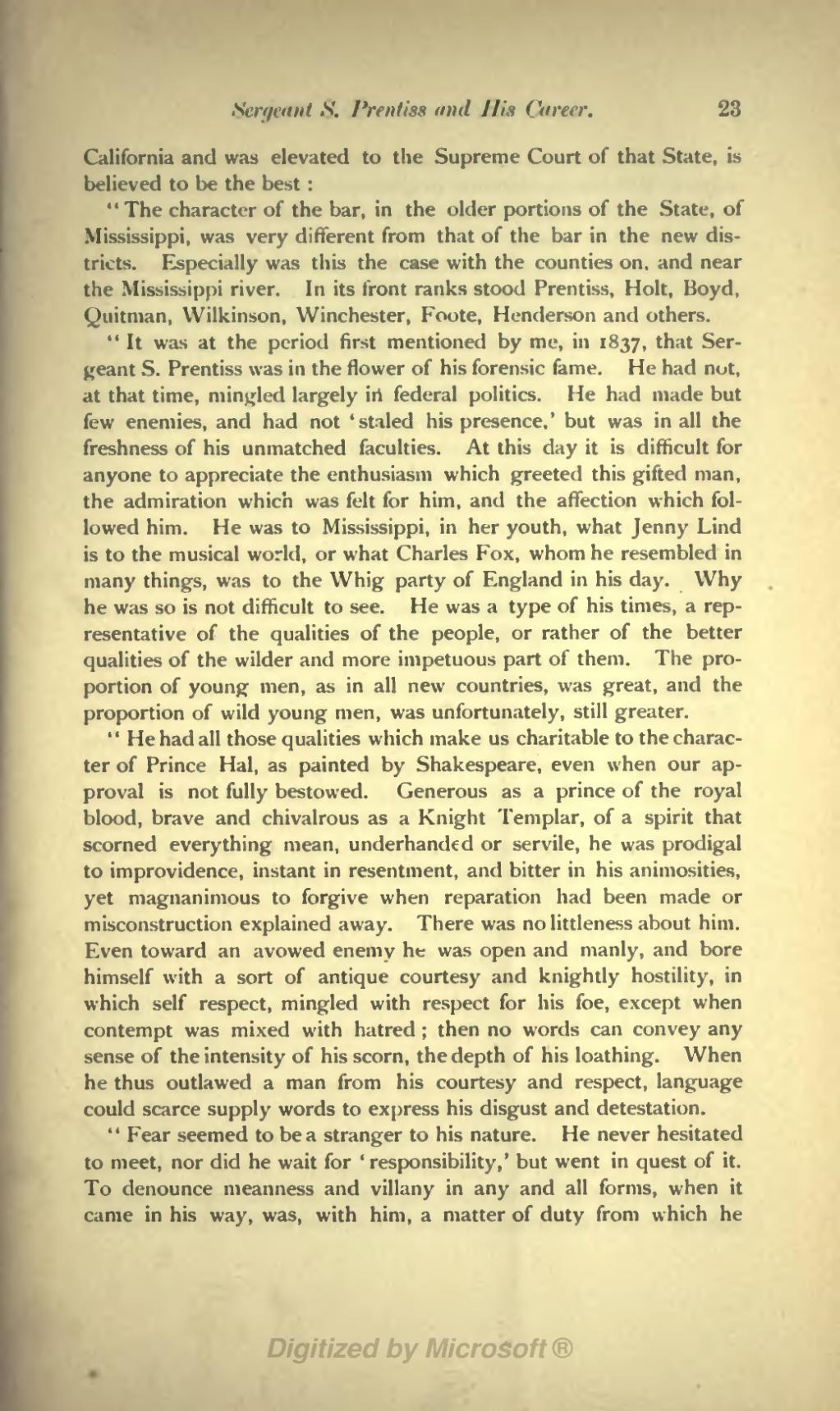jeant N. /'////<>< >/,,</ //;.> < v -j:;
California ami wa> Hi-vati-d to the Supreme Court of that StaU-. is bc-lieved to be the best :
" The character of the bar, in the older portions of the Stat< , <f Mississippi, was very different from that of the bar in the new dis- tricts. Kspivially was tliis the case with the counties on, and near tin- Mississippi rivi-r. In its front ranks stood Prentiss, Holt, Boyd, Quitman, Wilkinson, Winchester, Foote, Henderson and oth
" It was at the period first mentioned by me, in 1837, that Ser- m ant S. Prentiss was in the flower of his forensic fame. He had not, at that time, mingled largely iri federal politics. He had made but few enemies, and had not ' staled his presence. ' but was in all the freshness of his unmatched faculties. At this day it is difficult for anyone to appreciate the enthusiasm which greeted this gifted man, the admiration which was felt for him, and the affection which fol- lowed him. He was to Mississippi, in her youth, what Jenny Lind is to the musical world, or what Charles Fox, whom he resembled in many things, was to the Whig party of England in his day. Why he was so is not difficult to see. He was a type of his times, a rep- resentative of the qualities of the people, or rather of the better qualities of the wilder and more impetuous part of them. The pro- portion of young men, as in all new countries, was great, and the proportion of wild young men, was unfortunately, still greater.
" He had all those qualities which make us charitable to the charac- ter of Prince Hal, as painted by Shakespeare, even when our ap- proval is not fully bestowed. Generous as a prince of the royal blood, brave and chivalrous as a Knight Templar, of a spirit that scorned everything mean, underhanded or servile, he was prodigal to improvidence, instant in resentment, and bitter in his animosities, yet magnanimous to forgive when reparation had been made or misconstruction explained away. There was no littleness about him. Even toward an avowed enemy he was open and manly, and bore himself with a sort of antique courtesy and knightly hostility, in which self respect, mingled with respect for his foe, except when contempt was mixed with hatred ; then no words can convey any sense of the intensity of his scorn, the depth of his loathing. When he thus outlawed a man from his courtesy and respect, language could scarce supply words to express his disgust and detestation.
" Fear seemed to be a stranger to his nature. He never hesitated to meet, nor did he wait for ' responsibility,' but went in quest of it. To denounce meanness and villany in any and all forms, when it came in his way, was, with him, a matter of duty from which he
